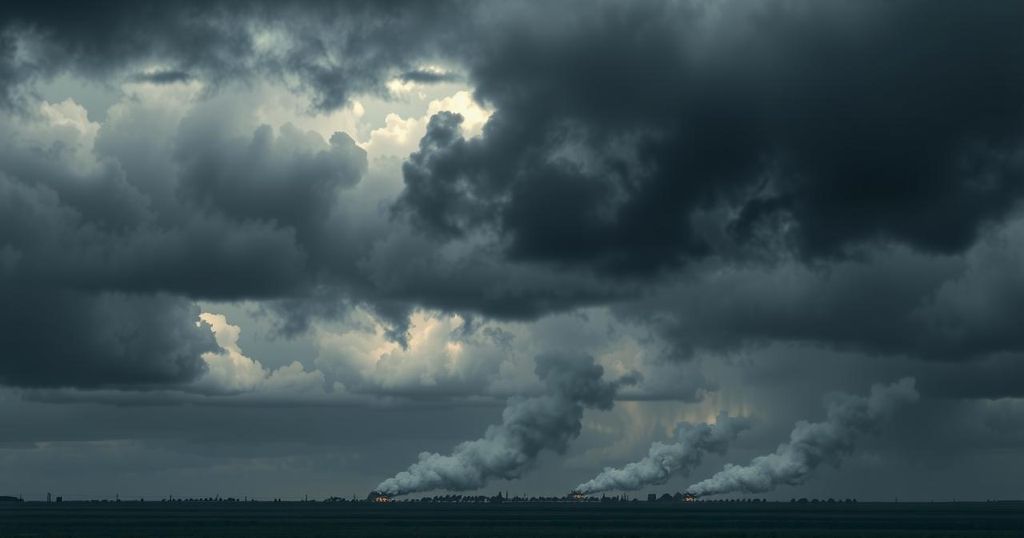Global news
AFRICA, AU, CENTER FOR PEACE AND ADVOCACY, CIVIL WAR, CONFLICT, CPA, HUMANITARIAN CRISIS, IGAD, JONGLEI, JONGLEI STATE, MILITARY, RADIO, RADIO TAMAZUJ, RIEK MACHAR, SOUTH SUDAN PEOPLE ’ S DEFENCE FORCE, SPLA, SPLA - IO, SSPDF, TAMAZUJ, TER MANYANG, TUTJIEK, UGANDA, UGANDAN PEOPLE ’ S DEFENCE FORCE, UPDF, WALGAK, YI, YIEY DAK
Fatima Khan
0 Comments
Airstrikes in Akobo Heighten Tensions in South Sudan Amid Political Unrest
Airstrikes near Akobo, South Sudan, heightened fears of civil war amid increasing tensions between President Salva Kiir and First Vice President Riek Machar. The strikes targeted civilian vehicles, causing market closures and leading to passenger disappearances. Local authorities seek clarity while civil society calls for international intervention to facilitate dialogue. Western embassies encourage efforts to restore peace in the conflict-ridden region.
On Tuesday afternoon, airstrikes near Akobo, a border town in Jonglei State, South Sudan, created panic among local residents. This event heightens fears of a potential civil war due to rising tensions between President Salva Kiir and First Vice President Riek Machar. The situation has become dire as Ugandan troops, deployed to secure Juba, face accusations of conducting supportive airstrikes for the South Sudan People’s Defence Force (SSPDF).
Commissioner Puok Nyang Tutjiek reported that the airstrikes occurred around 12:45pm, targeting two vehicles transporting goods and passengers on a route linking Walgak to Akobo. Contrary to previous beliefs, the strikes were not aimed at SPLA-IO Spy Chief Gen. Yiey Dak’s vehicle, who had fled recently amidst unrest. “Those in the vehicles, including children, scattered into the bushes, but the vehicles managed to reach town,” stated Commissioner Tutjiek.
Although no casualties were reported, many passengers who fled remain missing, causing market closures and heightened fears among residents. Local authorities are currently seeking explanations from Juba regarding the intentions behind the airstrikes. This incident, along with increased airstrike activities in the Upper Nile region, has raised alarms among civil society organizations and international observers.
Ter Manyang, the Executive Director of the Center for Peace and Advocacy, termed the airstrikes a “dangerous escalation” and called for international intervention. He expressed the need for AU and IGAD observers to encourage dialogue between the conflicting leaders to avert further violence.
In response, several western embassies in Juba encouraged a direct meeting between President Kiir, First Vice President Dr. Machar, and other leaders to restore peace. The embassies condemned the ongoing violence in the Upper Nile region, which includes aerial bombardments and credible reports of civilian casualties, according to a joint statement from the Delegation of the European Union and other embassies.
The airstrikes in Akobo reflect escalating tensions between South Sudan’s political leaders amidst fears of renewed civil war. While local authorities seek clarity on the bombings’ motives, civil society and international actors urge for dialogue to prevent further violence. The involvement of Ugandan forces further complicates the situation, as external intervention may be necessary to restore peace and stability.
Original Source: www.radiotamazuj.org




Post Comment